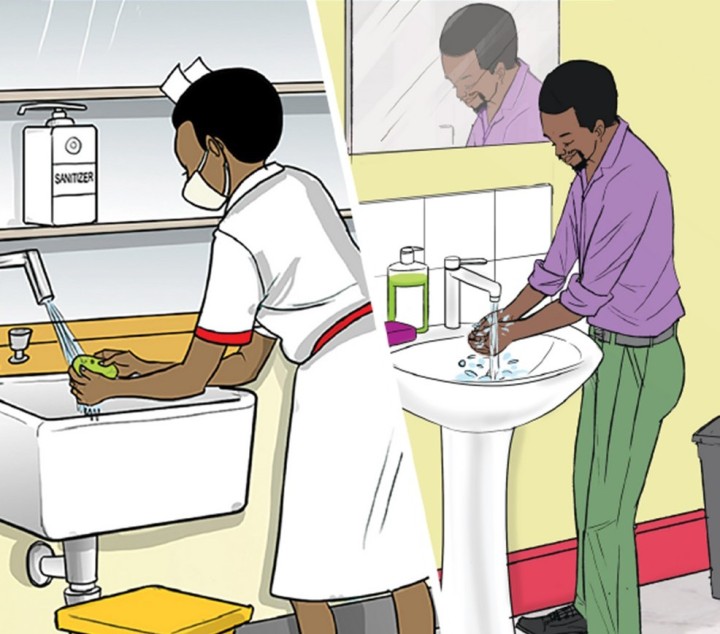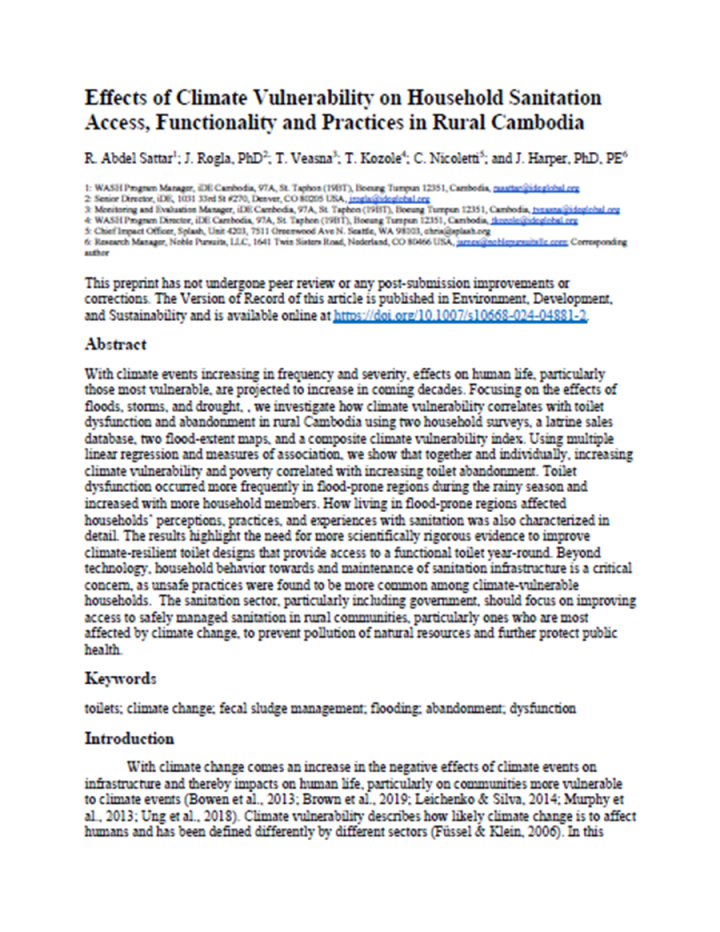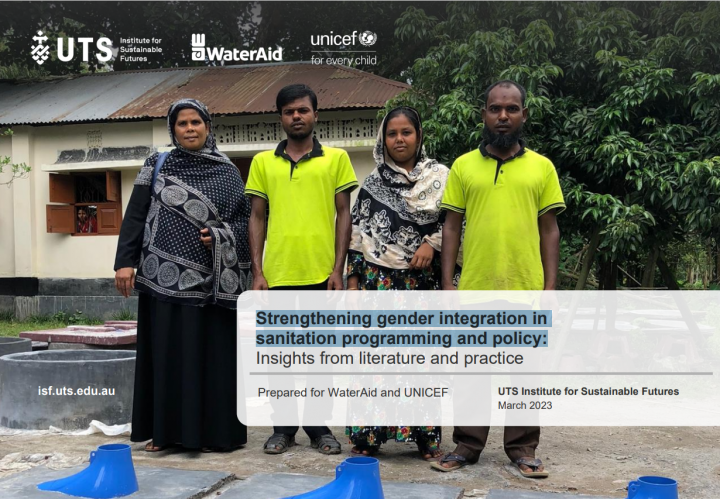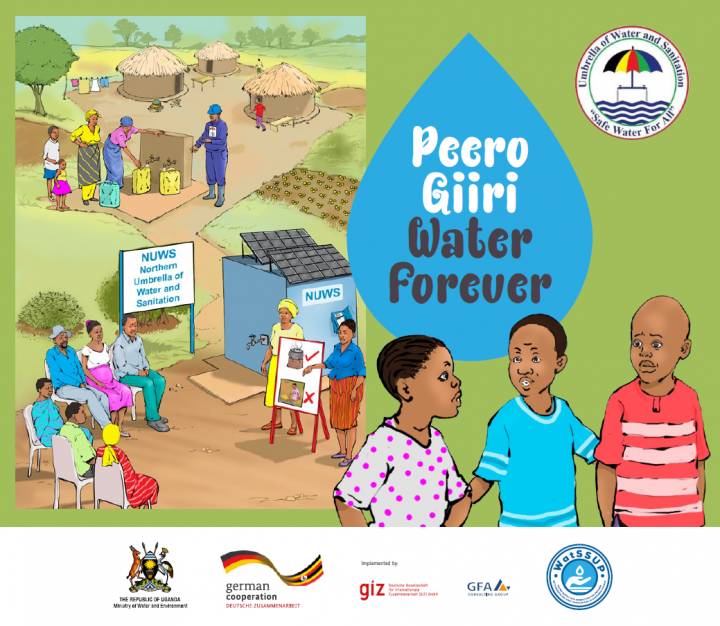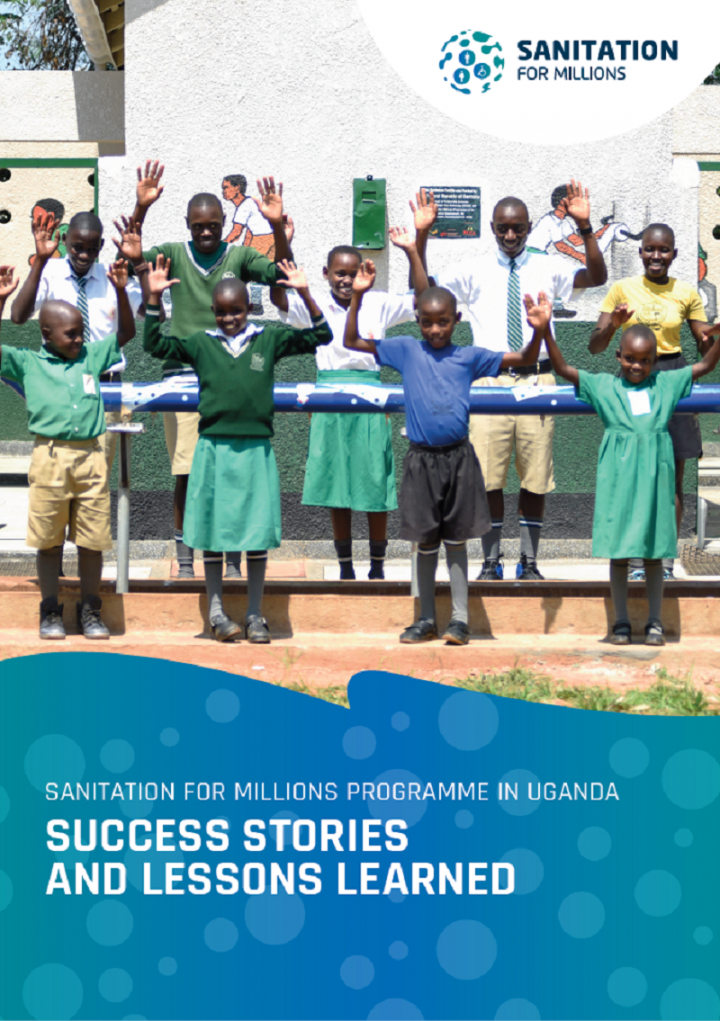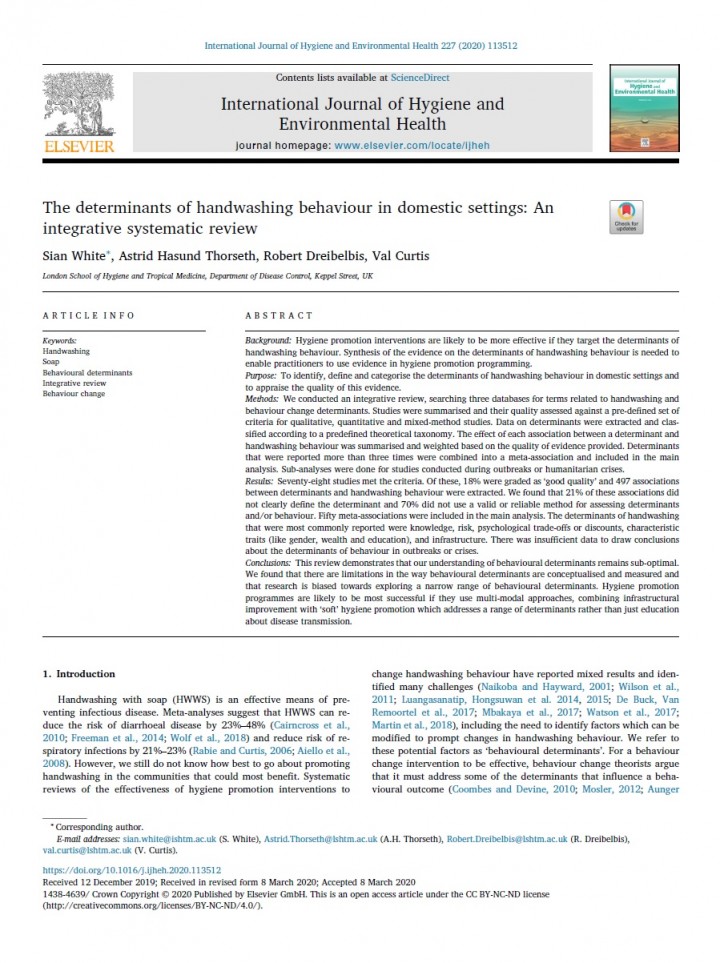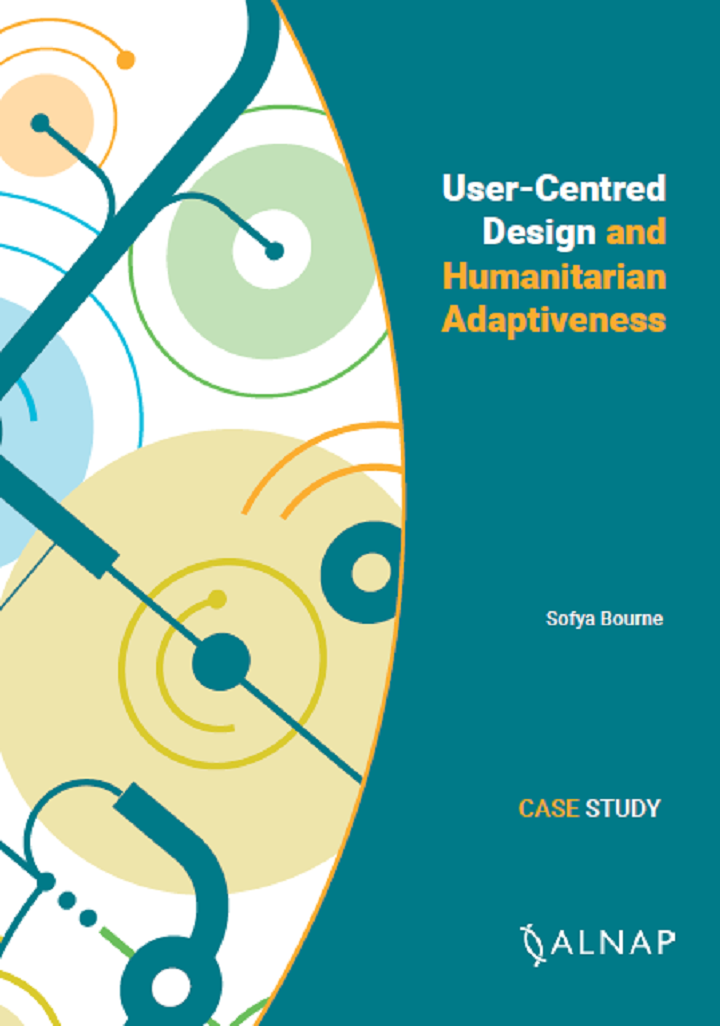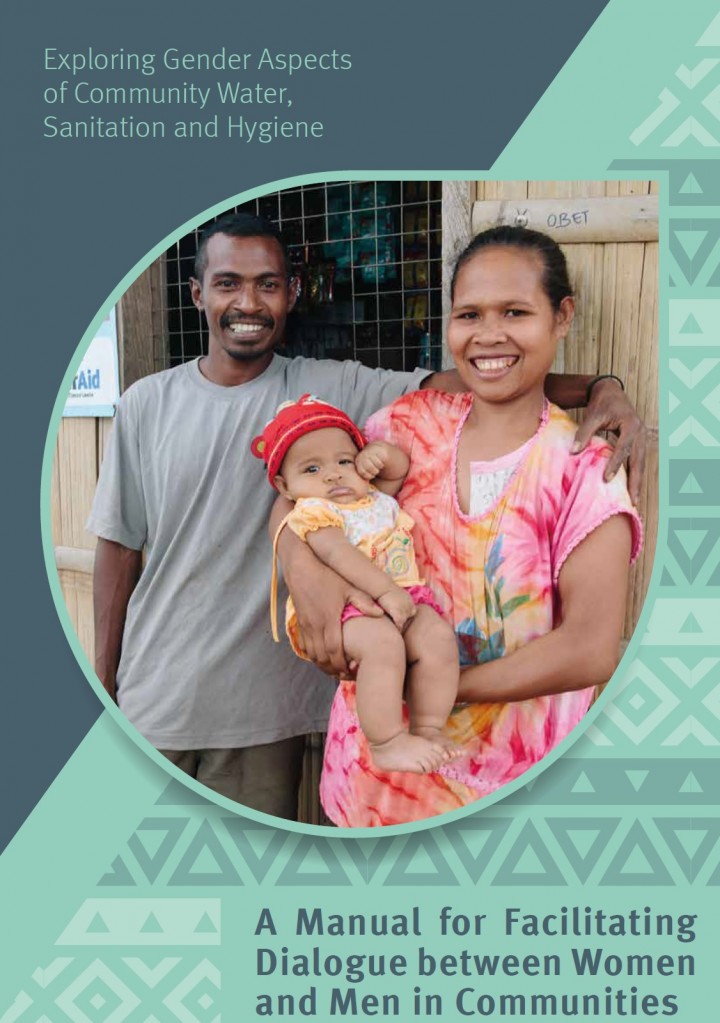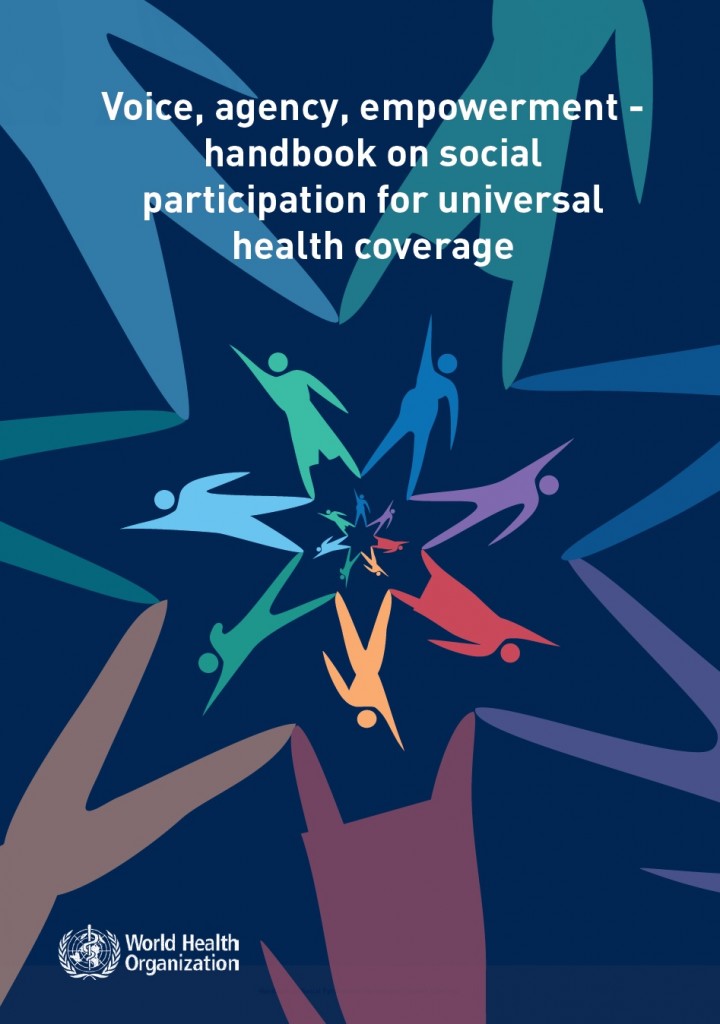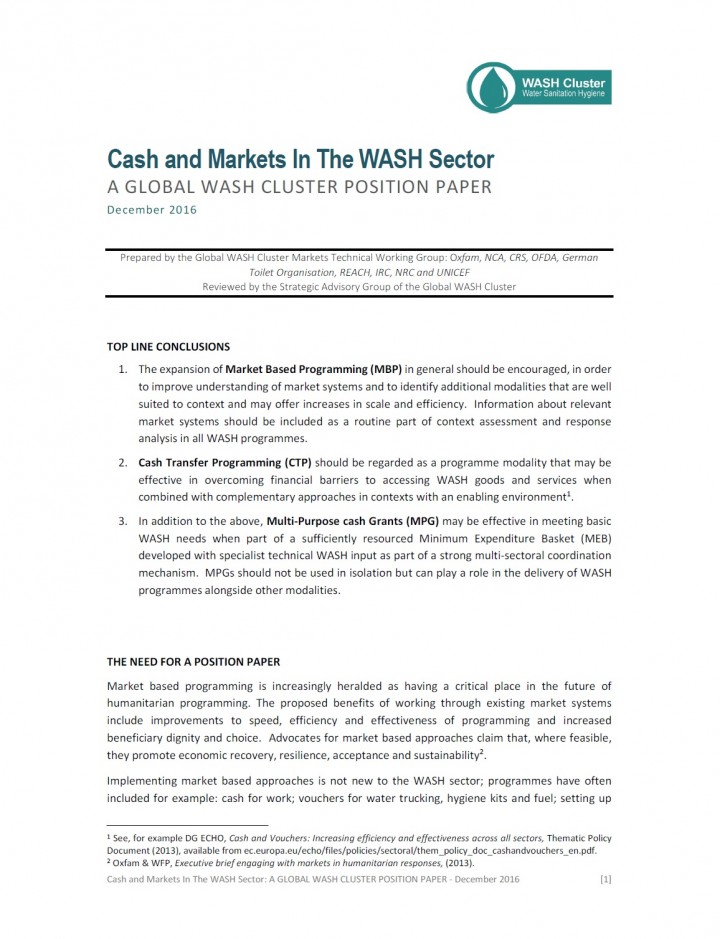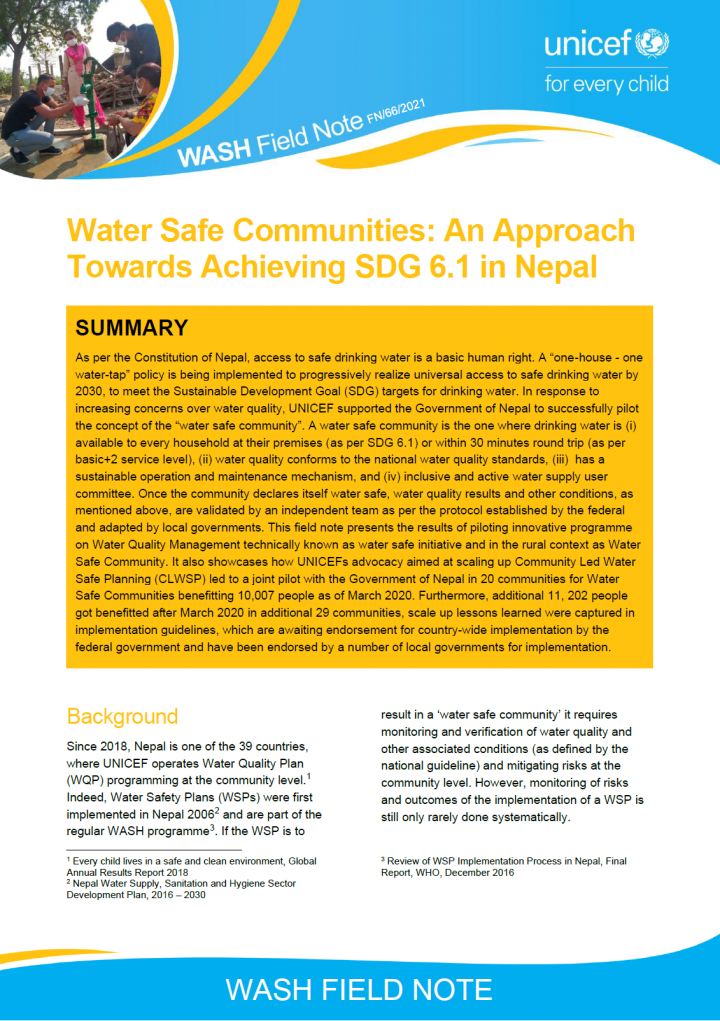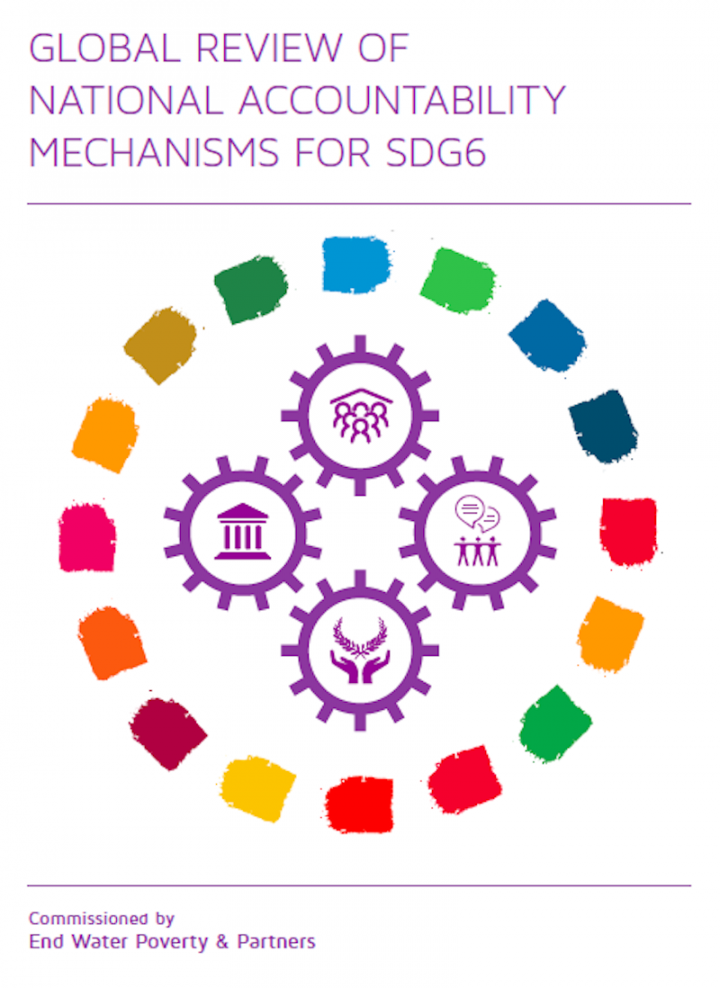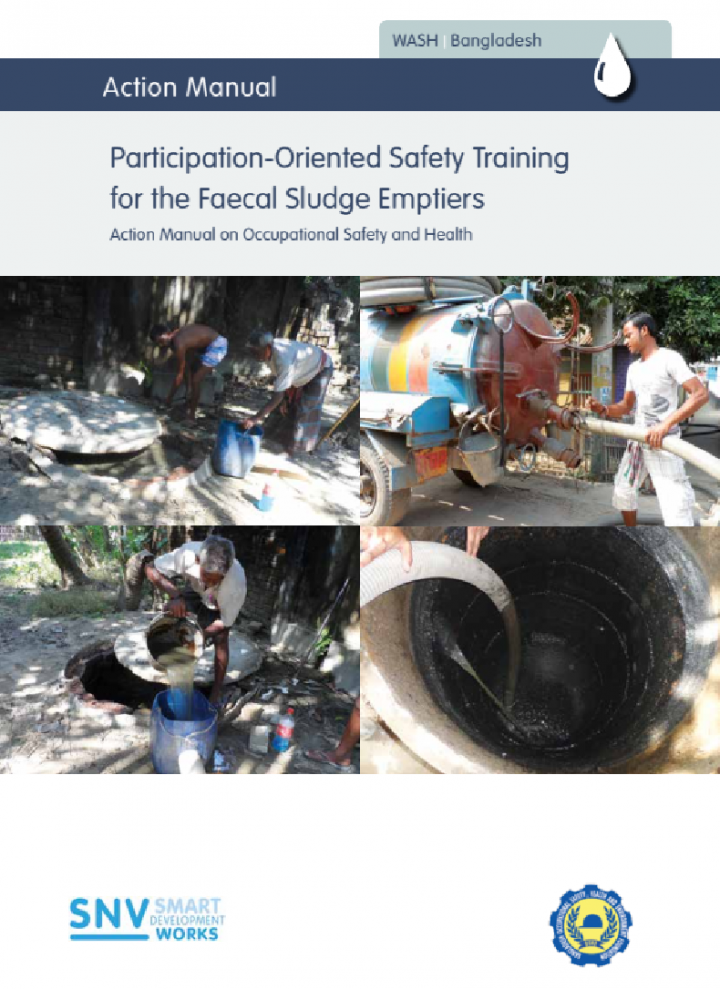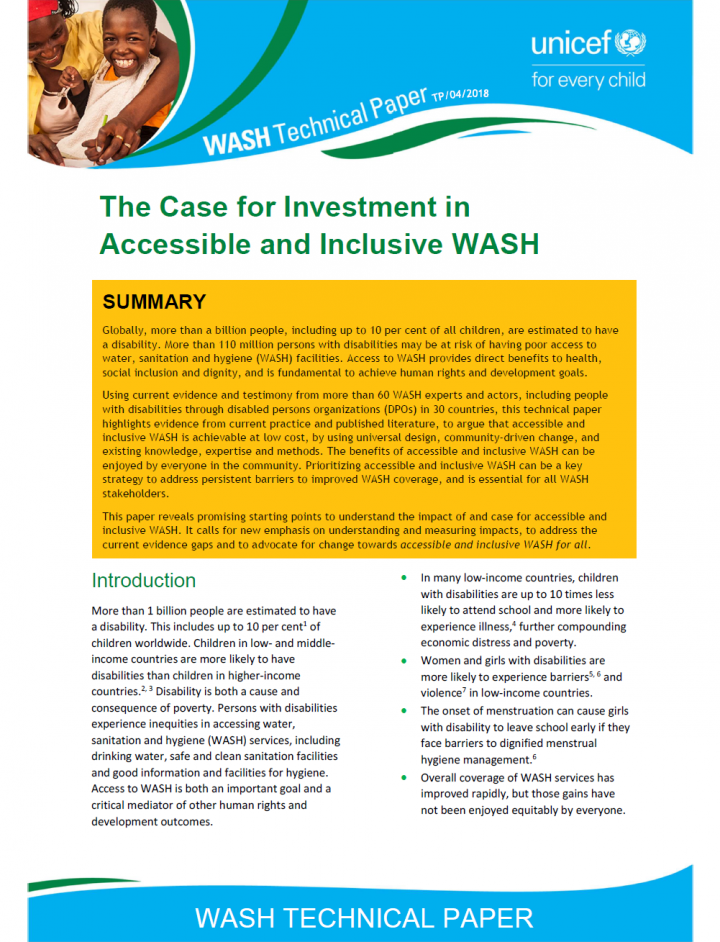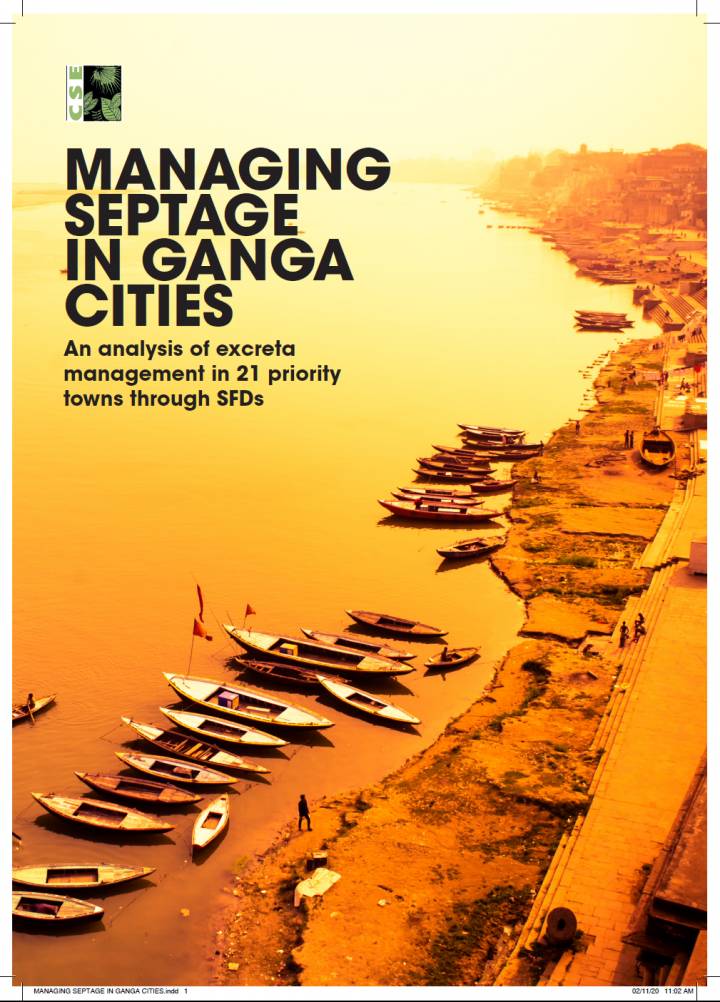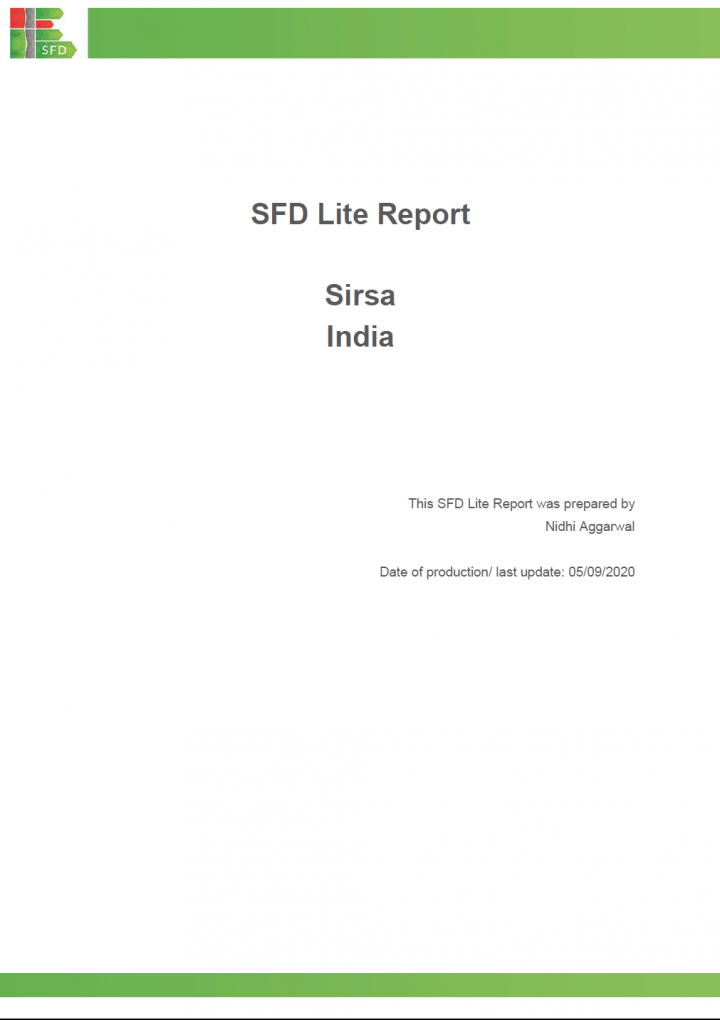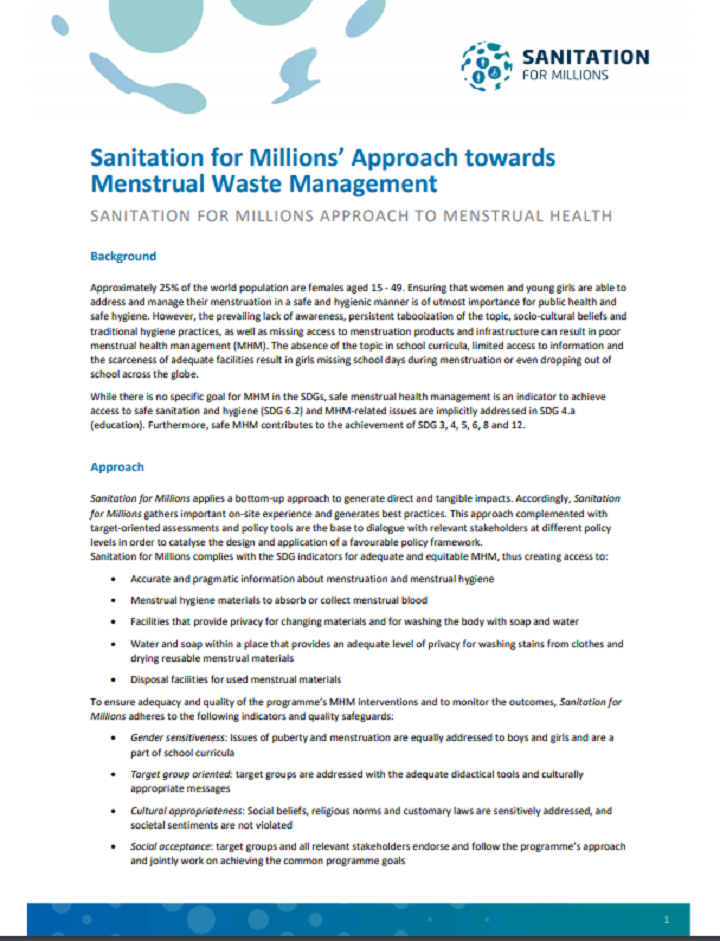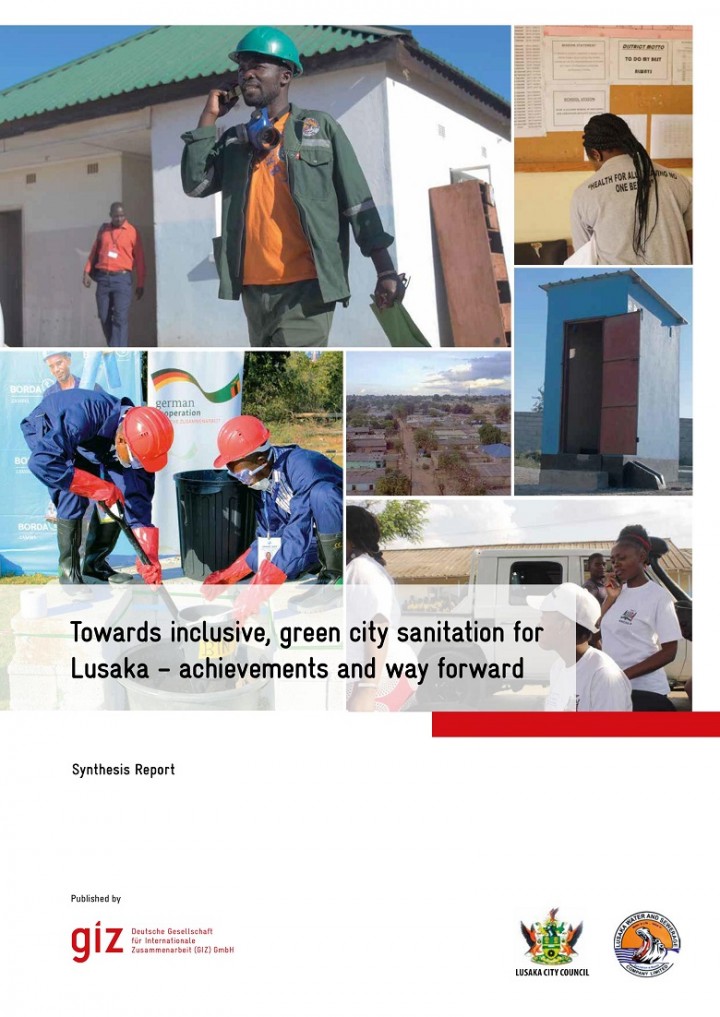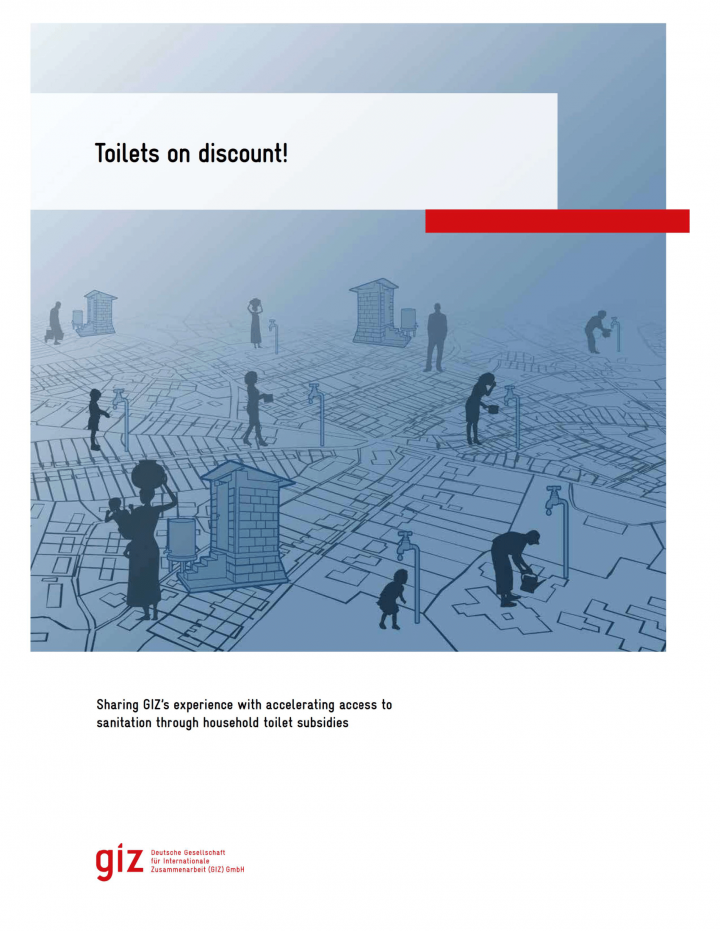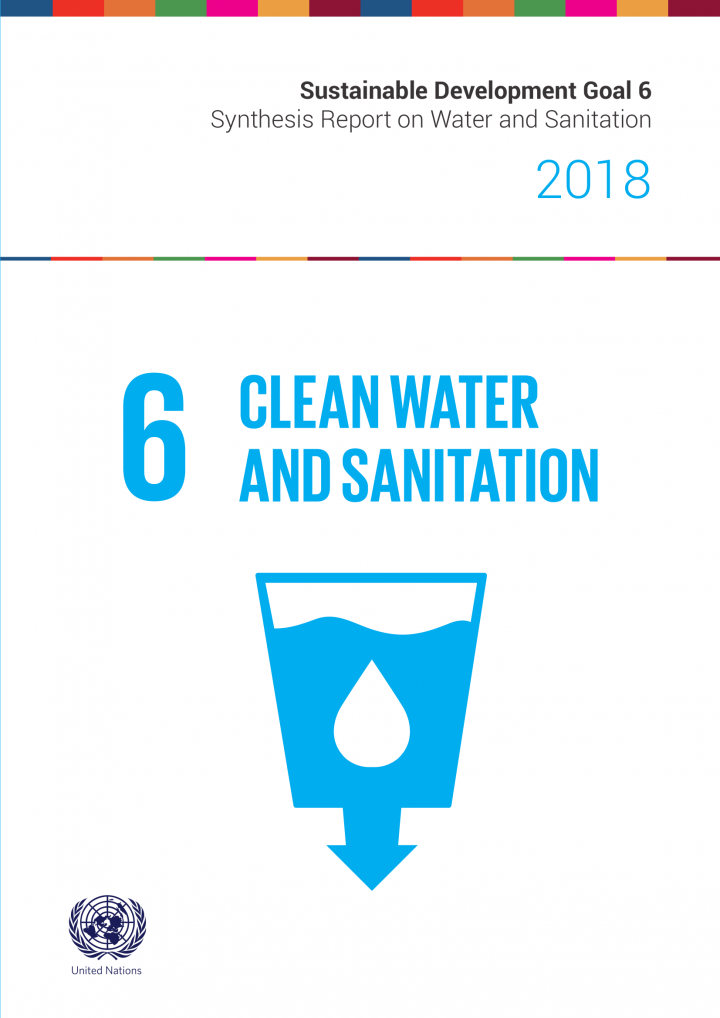Sanitation for Millions (2025) Service Offer: Improve Quality of Care in Health Care Facilities Through Localization of the WASH FIT Approach
This service offer provides guidance for the systemic adaptation, localization, and scaling up of the Water and Sanitation for Health Facility Improvement Tool (WASH FIT), developed by World Health Organization (WHO) and United Nations International Children's Emergency Fund (UNICEF), within a dedicated localized and harmonized partnership approach. It was developed by the global project Sanitation for Millions, implemented by the Deutsche Gesellschaft für Internationale Zusammenarbeit […]
R. Abdel Sattar; J. Rogla, PhD; T. Veasna; T. Kozole; C. Nicoletti; and J. Harper, PhD, PE (2024) Effects of Climate Vulnerability on Household Sanitation Access, Functionality and Practices in Rural Cambodia
With climate events increasing in frequency and severity, effects on human life, particularly those most vulnerable, are projected to increase in coming decades. Focusing on the effects of floods, storms, and drought, , we investigate how climate vulnerability correlates with toilet dysfunction and abandonment in rural Cambodia using two household surveys, a latrine sales database, two flood-extent maps, and a composite climate vulnerability index. Using […]
Avni Kumar, Jess MacArthur, Professor Juliet Willetts (2023) Strengthening gender integration in sanitation programming and policy: Insights from literature and practice
The integration of gender equality and inclusion within water, sanitation and hygiene (WASH) service provision is critical to ensuring sustained and equitable access. Efforts to integrate gender considerations in the WASH sector have evolved from an instrumental approach towards a more transformational approach that supports dual outcomes in WASH and in gender equality more broadly. This report presents the results of a rapid review of […]
Water Supply and Sanitation for Refugee Settlements and Host Communities in Northern Uganda (WatSSUP) (2023) Peero Giiri - Water Forever
As the largest refugee hosting country in Africa, Uganda currently hosts more than 1.5 million refugees throughout the country. Since 2017, Uganda has been one of the first countries to pilot the implementation of the Comprehensive Refugee Response Framework (CRRF). The CRRF aims to ease pressure on host countries, like Uganda, enhance refugees’ self-reliance, expand access to third-country solutions, and foster conditions that enable refugees […]
Sanitation for Millions Uganda implementation team (2021) Sanitation for Millions Programme in Uganda- Success stories and lessons learned
Sanitation for Millions is a global multi-donor programme to improve access to safe sanitation and hygiene with a focus on vulnerable and disadvantaged groups. More than one million people in 14 countries have already benefitted directly from Sanitation for Millions’ measures that include the construction of sanitary facilities, capacity development to ensure adequate use, operation and maintenance, behaviour change measures towards safe hygiene as well […]
White, S., Thorseth, A. H., Dreibelbis, R., Curtis, V. (2020) The Determinants of Handwashing Behaviour in Domestic Settings: An Integrative Systematic Review
Background: Hygiene promotion interventions are likely to be more effective if they target the determinants of handwashing behaviour. Synthesis of the evidence on the determinants of handwashing behaviour is needed to enable practitioners to use evidence in hygiene promotion programming. Purpose: To identify, define and categorise the determinants of handwashing behaviour in domestic settings and to appraise the quality of this evidence. Methods: We conducted an integrative […]
Bourne, S. (2019) User-Centred Design and Humanitarian Adaptiveness
Gathering and acting on feedback from affected communities is a key means to identify potential triggers for change during the design and implementation of humanitarian programmes. This study is focused on user-centred design (UCD), an approach often used outside the humanitarian sector to design products and services that are tailored to the needs and preferences of end-users and are created with the users’ involvement in […]
WaterAid (2016) Exploring Gender Aspects of Community Water, Sanitation and Hygiene A Manual for Facilitating Dialogue between Women and Men in Communities
This manual was developed by WaterAid Timor-Leste as a means to integrate gender inequality as a significant consideration in its water, sanitation and hygiene (WASH) programming at the community level. The Manual aims to foster and encourage change towards greater gender equality. The approach is not to conduct formal ‘training’ but to facilitate opportunities for dialogue between women and men in communities in order to build […]
WHO (2021) Voice, Agency, Empowerment - Handbook on Social Participation for Universal Health Coverage
Social participation is an important means for governments to develop responsive health policies and programmes, which are more likely to be implemented by a broad stakeholder group. It is at the heart of the inclusive governance needed for countries to stake their individual paths towards Universal Health Coverage while ensuring that no one is left behind. As simple as it may seem in theory, it is […]
Global WASH Cluster (GWC) (2016) Cash and Markets in the WASH Sector A GWC Position Paper
Market based programming is increasingly heralded as having a critical place in the future of humanitarian programming. The proposed benefits of working through existing market systems include improvements to speed, efficiency and effectiveness of programming and increased beneficiary dignity and choice. Advocates for market based approaches claim that, where feasible, they promote economic recovery, resilience, acceptance and sustainability2. Implementing market based approaches is not new to […]
Dhakal, S.B., Bishwakarma, D.R., Shrestha, R., Ahmad, T. (2021) Water Safe Communities: An Approach Towards Achieving SDG 6.1 in Nepal
As per the Constitution of Nepal, access to safe drinking water is a basic human right. A “one-house - one water-tap” policy is being implemented to progressively realize universal access to safe drinking water by 2030, to meet the Sustainable Development Goal (SDG) targets for drinking water. In response to increasing concerns over water quality, UNICEF supported the Government of Nepal to successfully pilot the […]
WSSCC (2018) Global Review of National Accountability Mechanisms for the Implementation of SDG 6
This study took place between October 2017 and March 2018 and was led by CSOs in 25 countries under the umbrella of End Water Poverty, Watershed Consortium, Coalition Eau and the Water Supply and Sanitation Collaborative Council (WSSCC). Organisations agreed to conduct an in-depth inclusive analysis on country-level accountability mechanisms towards SDG6 on clean water and sanitation implementation and produce a comprehensive report, assessing their […]
Repon, A. C., Faruq, O., Mamtaz, R. (2015) Participation-Oriented Safety Training for the Faecal Sludge Emptiers
In Bangladesh, the most commonly used sanitation options such as pit-latrines and pour-flush latrine use pits or septic tanks for containing faecal sludge (FS) for a certain period of time which require regular emptying when the tanks or pits become full. This emptying and disposing of faecal sludge is usually performed in a traditional (manual) way by a certain group of people in the society […]
UNICEF (2018) The Case for Investment in Accessible and Inclusive WASH
Globally, more than a billion people, including up to 10 per cent of all children, are estimated to have a disability. More than 110 million persons with disabilities may be at risk of having poor access to water, sanitation and hygiene (WASH) facilities. Access to WASH provides direct benefits to health, social inclusion and dignity, and is fundamental to achieve human rights and development goals. […]
Luthra, B., Gupta, E., (2020) Managing Septage in Ganga Cities An analysis of excreta management in 21 priority towns through SFDs
Namami Gange (a national mission for cleaning the Ganga River) is not just about physical cleaning of the river, it is about rejuvenating it and ensuring that it is ever flowing (Aviral) with clean (Nirmal) water. To achieve the same, a comprehensive approach is required which cuts across a lot of sectors. Human excreta (wastewater, faecal sludge, and supernatant) is one of the main causes […]
Aggarwal, N. (2020) SFD Lite Report - Sirsa, India
The Sirsa city is a municipal council and the headquarter of Sirsa district in Haryana. It is located at mean elevation of about 205 msl at 29.53°N 75.02°E. It is about 260 km NW of New Delhi and 240 km from state capital of Chandigarh. The city covers an area of 26 km2. It is said to be one of the oldest places of North […]
GIZ Sanitation for Millions (2020) Sanitation for Millions Approach towards Menstrual Waste Management And Menstrual Health
Approximately 25% of the world population are females aged 15 - 49. Ensuring that women and young girls are able to address and manage their menstruation in a safe and hygienic manner is of utmost importance for public health and safe hygiene. However, the prevailing lack of awareness, persistent tabooization of the topic, socio-cultural beliefs and traditional hygiene practices, as well as missing access to […]
Gerlach, E., Mallaghan, A., Mbalo, D., Büürma, M., Surridge, T. (2020) Towards inclusive, green city sanitation for Lusaka – achievements and way forward
From December 2016, the German-funded project ClimateFriendly Sanitation Services in Peri-Urban Areas of Lusaka (CFS-Lusaka) implemented by GIZ on behalf of the German Federal Ministry for Economic Cooperation and Development (BMZ) supported stakeholders to strengthen on-site sanitation (OSS) and safe faecal sludge management (FSM) in the fast-growing Zambian capital within the context of the multi-donor Lusaka Sanitation Programme (LSP). Poor sanitation practices had been identified […]
Mbalo, D., Rossmann, R. (2019) Toilets on discount - Sharing GIZ’s experience with accelerating access to sanitation through household toilet subsidies
The debate on subsidies has recently resurfaced in the context of the ambitious Sustainable Development Goal to achieve universal access to safely managed sanitation and the very significant funding gap to achieve this. The water and sanitation sector has always been highly subsidized, yet those subsidies mostly flow into support for existing customers rather than extension of services to the underserved. The World Bank’s recent […]
UN (2018) Sustainable Development Goal 6 Synthesis Report 2018 on Water and Sanitation
The establishment of SDG 6, Ensure availability and sustainable management of water and sanitation for all, reflects the increased attention on water and sanitation issues in the global political agenda. The 2030 Agenda lists rising inequalities, natural resource depletion, environmental degradation and climate change among the greatest challenges of our time. It recognizes that social development and economic prosperity depend on the sustainable management of […]
